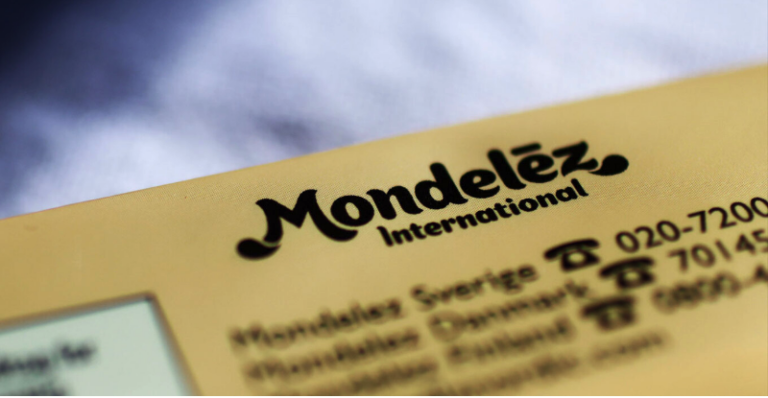The hefty €337.5 million fine imposed yesterday by the Commission on Mondelez International for obstructing cross-border trade between Member States in violation of EU competition rules seems to be the straw that broke the camel’s back!
According to reports, Greece and seven other EU countries (the Netherlands, Belgium, Croatia, the Czech Republic, Denmark, Luxembourg, the Netherlands, Belgium, Croatia, the Czech Republic and Slovakia) will today argue together at the EU Competitiveness Council, which is meeting in Brussels, to make the necessary interventions in EU law in order to tighten the conditions or even abolish the “Geographical Supply Restrictions” measure.
On this basis, the eight countries have already drafted a specific proposal for an approach to the issue, asking the Commission and the other EU Member States to agree to prohibit discrimination in B2B transactions between businesses on the basis of their place of establishment.
It is noted that “Geographic Restrictions” are prohibited through EU competition law, provided there is ex post evidence that there was an abuse of a dominant position. However, this requires a lengthy and extensive case-by-case investigation (product market and company-by-company investigation). The burden of proof is primarily on the customer, e.g. the retailer.
If the rules are adapted to prohibit unfair practices in B2B relationships that discriminate against a retailer on the basis of his place of establishment, as requested by the eight countries, then the issue of “geographical restrictions” can be addressed in advance and the burden of proof can be shifted from the customer, e.g. the retailer, to the producer or wholesaler.
They also suggest that solutions should be sought using digital technology, perhaps through QR codes, to overcome the obstacle of translating the ingredients that must appear on the packaging in each language of the country where the product is marketed.
The move comes exactly one week after Prime Minister Kyriakos Mitsotakis wrote a letter to Commission President Ms Ursula von der Leyen asking for specific interventions in EU law to ensure equal treatment and consumer protection from the “cap” that multinational companies place on prices, especially in countries with oligopolistic characteristics.
The ‘8’ consider that the ‘Geographical Restrictions’ measure, while originally introduced to protect investment and prevent unfair competition from one country to another, has ultimately contributed to the creation of a distorted situation which in turn is becoming a major plague amidst high inflation. With this, multinationals try and succeed in maintaining different prices for their products from one country to another, putting a ‘hat’ on the smaller economies in particular and where there is insufficient competition. This “hat” was calculated in a study by the Commission in 2020, before the inflationary tsunami that sent consumer goods prices soaring, concluding that it exceeds 14 billion euros a year!
And a recent study by the University of Leiden in the Netherlands, authored by EU Competition Law Professor Ben van Rompuy, concludes that geographical supply restrictions are a hidden factor in boosting inflation in key products!
The issue will apparently be dealt with by the next European Council to be set up after the European elections.
The Mondelez case
Yesterday the Commission accused Mondelez International of illegally putting up barriers for traders to sell its products between EU member states between 2015 and 2019. In fact, 22 examples were cited where Mondelez was found to have participated in anti-competitive agreements or concerted practices.
In one case, the multinational was accused of withdrawing chocolate bars from the Netherlands to prevent them from being resold in Belgium, where they were sold at higher prices.
The company was also accused by the Commission of refusing to supply a wholesaler in Germany in order to prevent the resale of chocolate bar products in Austria, Belgium, Bulgaria and Romania, “where prices were higher”.
What a Mondelez spokesman tells protothema.gr
In a statement to protothema.gr, the Mondelez Group clarifies that “the decision relates to earlier, isolated incidents, most of which either no longer existed or had been remedied long before the Commission’s investigation started. Many of these incidents related to business transactions with brokers which were occasionally carried out as individual sales, as well as transactions by small distributors operating in EU markets where Mondelēz is not present or does not market the relevant products’.
Mitsotakis from Chios: Political stability is the stake of the European elections
It clarifies that for the fine ‘an accounting provision has already been made and therefore we will not need to take further measures to finance it. This issue is not indicative of what we stand for as a company and in no way reflects our long-standing practice of investing in a strong culture of compliance with the applicable regulatory and legislative framework across all our activities…”
At the same time, company circles clarify with certainty that in no way is the Greek market involved in this case.
It is noted that in previous years there have been two other similar cases of multinationals for which the General Secretariat of the Greek Government has been informed. The Commission’s Competition Directorate of the European Commission had also submitted fierce fines. The first, in 2019, concerned brewer AB InBev and the second, in 2021, concerned Valve, owner of the video game distribution platform “Steam”, and five video game developers (PC, Bandai Namco, Capcom, Focus Home, Koch Media and ZeniMax).
Ask me anything
Explore related questions





